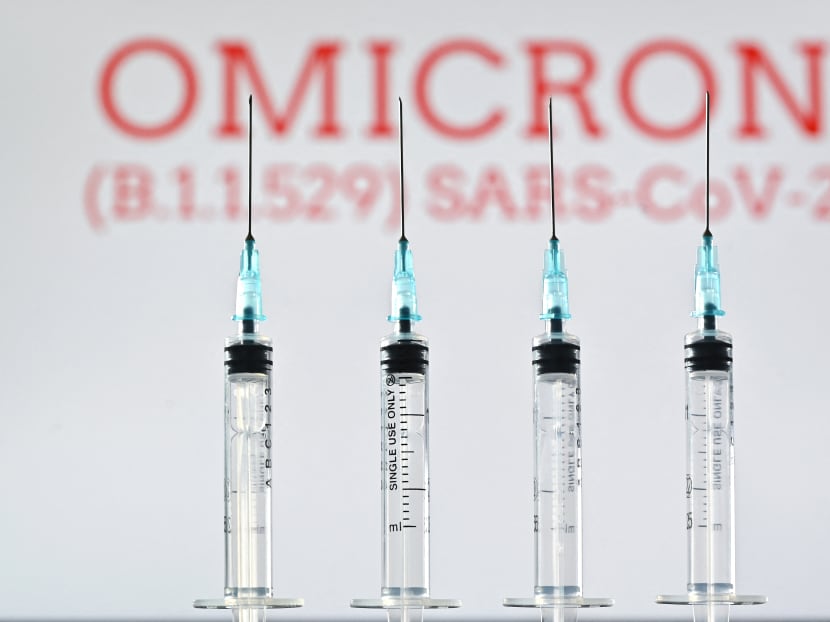Vaccine T-cells may hold robust defensive line against Omicron variant: Study
HONG KONG — The highly mutated coronavirus variant Omicron might be able to evade the body’s first line of immune defence but is unlikely to make it through the second — T-cells, according to the results of a computational study.

T-cell responses induced by vaccines, boosters and previous infections could help protect against severe illness and hospitalisation from Omicron.
HONG KONG — The highly mutated coronavirus variant Omicron might be able to evade the body’s first line of immune defence but is unlikely to make it through the second — T-cells, according to the results of a computational study.
In a peer-reviewed article published in the journal Viruses on Sunday (Jan 2), researchers in Hong Kong and Australia said T-cell responses induced by vaccines, boosters and previous infections could help protect against severe illness and hospitalisation from Omicron.
But the number of infections might rise because of Omicron’s ability to evade the first line of defence — antibodies, which block infection and prevent transmission.
“Robust T-cell immunity provides hope that, similar to other variants of concern, the level of protection against severe disease would remain high,” said the scientists, from Hong Kong University of Science and Technology and the University of Melbourne.
“If T-cell responses hold up, they are likely to assist in limiting disease severity in infections caused by Omicron that seemingly escapes neutralising antibodies.”
The World Health Organisation estimates the Omicron variant has 26 to 32 mutations in the spike protein, the part of the virus that attaches to human cells. That compares with the eight mutations seen in the Delta variant’s spike protein.
Early studies indicate that Omicron’s spike protein mutations help the variant evade virus-fighting antibodies generated by previous infections or vaccines. There is also early evidence the variant has a higher risk of reinfection compared with previous strains.
In the paper published on Sunday, the researchers analysed more than 1,500 fragments of viral proteins recognised by T-cells in vaccinated or previously infected individuals and found that 20 per cent of them showed mutations associated with Omicron.
Study co-author Ahmed Abdul Quadeer said machine learning indicated that more than half of those with Omicron mutations would still be visible to T-cells, further lowering the chance that Omicron would escape their defences.
Dr Quadeer, a HKUST research assistant professor specialising in computational immunology, said the preliminary results were encouraging in that they showed vaccines protected against severe disease.
The results were also consistent with preprint studies that suggested T-cell responses continued to be robust against Omicron.
“Antibody responses are being affected, which is quite clear. But T-cell responses generated upon infection or vaccination are likely to remain robust against Omicron. T-cells can continue their role in preventing severe disease or hospitalisation,” he said.
Virologist Jin Dong-Yan of the University of Hong Kong, who was not involved in the research, said neutralising antibodies generated from vaccines remained the most important defence against Covid-19.
“[Neutralising antibodies are] the major force that protects against infection and severe disease,” Dr Jin said. “The T-cell response might be helpful in relieving symptoms and shortening the duration of the disease. But even if there is a robust T-cell response, it does not mean that it will protect against Omicron very effectively.”
He said the main unanswered questions about Omicron were why it spread so quickly in vaccinated people and recovered patients, and whether antibodies helped the variant to infect. SOUTH CHINA MORNING POST









